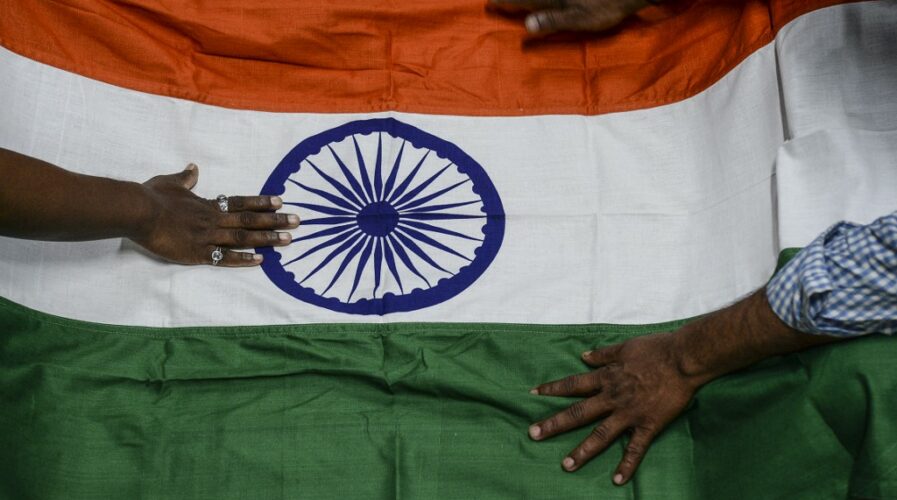
India ushers in the 5G era — Reliance promises nationwide coverage by 2023. (Photo by Indranil MUKHERJEE / AFP)
India ushers in the 5G era — Reliance promises nationwide coverage by 2023
- Prime Minister Narendra Modi has launched 5G in India, with assurance of services “more affordable than anywhere else in the world.”
- Reliance Jio’s 5G network will be “more affordable than anywhere else in the world”, and will cover the entire country by December next year.
- Bharti Airtel plans to do so by 2024.
After years of over-promising and delaying of 5G rollout, the fifth-generation network has finally been launched in India — the second largest internet market in the world. Despite being a late bloomer in the 5G race, India is promised by Reliance Industries Ltd of a nationwide 5G coverage by December 2023 — all through providing services that are “more affordable than anywhere else in the world.”
To recall, just in August, the Indian government after several delays, concluded a record US$19 billion auction for airwaves, including 5G airwaves. With that, Ambani’s Reliance Jio, the nation’s biggest telecom firm reaffirmed over the weekend that they are set to launch 5G in a handful of cities by Diwali this year, and will even “cover even the most remote cities in India” by December 2023.
The launch of 5G in India took place on Saturday during the sixth edition of India Mobile Congress (IMC) 2022 in Delhi. Another major telecom operator, Bharti Airtel, immediately rolled out 5G services in eight cities including Delhi and Mumbai, and promised the rest of the country by March 2024. The third mobile operator, Vodafone Idea, has yet to provide a timeline on their 5G services.
When all aforementioned carriers agreed to fork out US$19 billion just two months ago for airwaves at the government auction, Reliance’s US$11 billion bid topped the list. The conglomerate proposes to invest 2 trillion rupees (US$25 billion) more while Sunil Mittal’s Bharti Airtel Ltd. and Vodafone Idea Ltd. haven’t disclosed their spending plans as yet.
The technology can bring affordable, superior education and skill development to ordinary Indians and deliver high-quality healthcare to rural and remote areas, Ambani said on Saturday. “India may have started a little late, but we’ll finish first by rolling out 5G services that are of higher quality and more affordable,” he added.
Reliance Jio is expected to deploy a “standalone 5G” version that doesn’t depend on the earlier 4G network and will deliver speedier connectivity, Ambani highlighted previously. As Bloomberg puts it, Reliance is counting on countrywide deployment of 5G to help woo high-paying wireless users and boost its e-commerce and media business even though the technology hasn’t yet proven profitable for other Asian wireless operators.
“5G is much more than just the next generation of connectivity technology,” Ambani said in his speech. “It is a foundational technology that unlocks the full potential of other transformative technologies like Artificial Intelligence, Internet of Things, Robotics, Blockchain, and Metaverse.”
Reliance Jio is starting with four metropolitan areas this month. Bharti Airtel, which has opted for a non-standalone 5G architecture, where operators can maximize the utilization of their existing network infrastructure with relatively lower investment.
The Indian government has said that the cumulative economic impact of 5G on India was expected to reach US$450 billion by 2035. Separately, research agency OMDIA projects that with 369 million 5G subscriptions – more than half the total global 5G subscriptions currently – India will be just behind China and the United States in world rankings by 2026. On the other hand, telecom equipment maker Ericsson expects the number of subscriptions to India’s 5G services to reach about 500 million, or 39% of all mobile subscribers, by 2027.
READ MORE
- Strategies for Democratizing GenAI
- The criticality of endpoint management in cybersecurity and operations
- Ethical AI: The renewed importance of safeguarding data and customer privacy in Generative AI applications
- How Japan balances AI-driven opportunities with cybersecurity needs
- Deploying SASE: Benchmarking your approach


